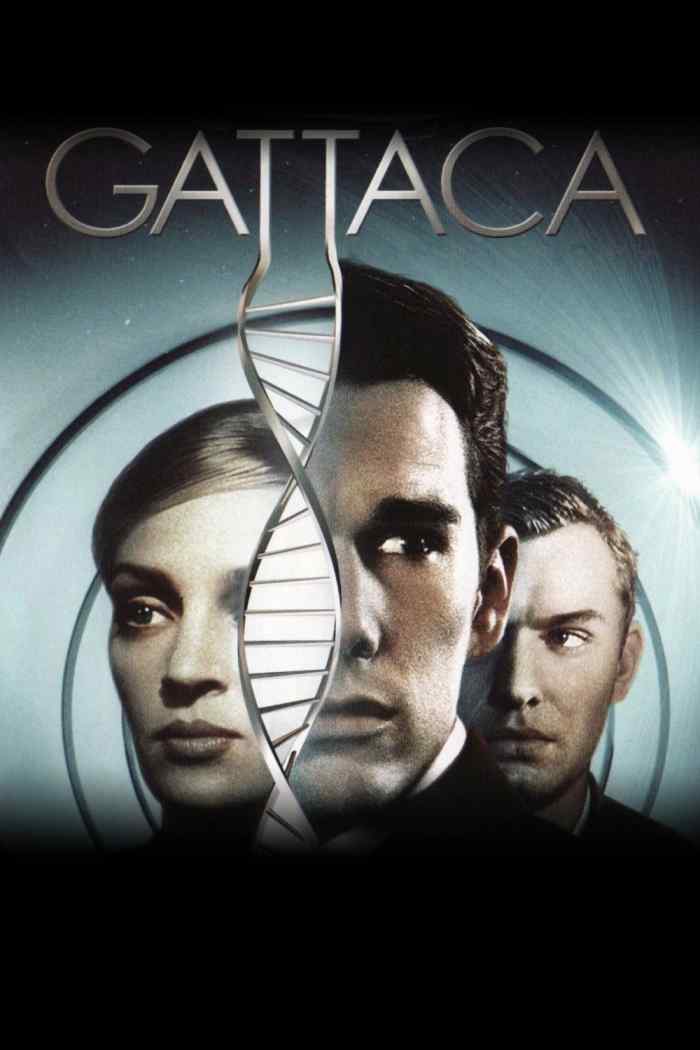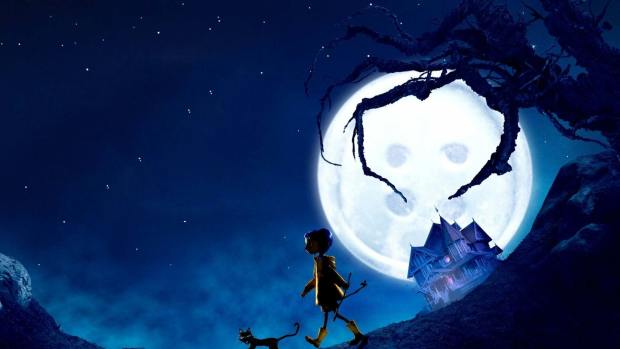"Gattaca": An In-Depth Analysis of Symbolism
A Commentary on Identity in a Dystopia
The film Gattaca acts as a response to the potential social and identity issues in a dystopian future reliant on genetic development. Gattaca’s political system utilises the ideology of genoism to divide society into classes in order to maintain social control.
Genetic determinism can be utilised to objectify humans into human resources, manipulating what one’s identity is, as shown through the incorporation of close-up scenes and complementary sound effects.
The glorification of genetic coding allows Gattaca’s society to maintain social control by dictating one’s identity whilst creating the means for self-destruction. Ultimately, Gattaca thoroughly explores issues of identity and social control within a potential dystopian society through the extensive use of aural and visual effects.
Bureaucratic Control
The divisions of the “Valids” and “In-Valids” highlight how Gattaca’s society utilises genetic discrimination to promote obligatory feelings to contribute to society to establish bureaucratic control.
Despite believing that Vincent would accomplish great feats after his birth, Vincent’s mother conforms to the rest of society’s nurture-over-nature mindset, causing her to favour Anton over Vincent.
The motif of the gates and gatekeepers shows how Vincent’s “In-Valid” status deprives him of educational benefits since nurseries are able to use the excuse of his health to shut the gate on Vincent.
The shutting of the gate signifies the humiliation his mother suffers for bringing a “faith-born” into a perfect world. The change in her views implies that her rejection of Vincent is not coincidental but systematically forced on her.
"Andrew creates this manicured world … in which the quest to make a better society has destroyed individuality,[1]"
— Jude Law (actor who played Jerome Morrow)
Law’s quote explains how Gattaca’s bureaucratic system actively advocates a “Valid” supremacist mindset, allowing institutional systems to crush individuality. The bureaucratic industries are portrayed through costume design as the “In-Valids” class wears a motif one-piece janitor clothing, as shown through mise-en-scenes of “Gattaca.”
“In-Valids” are unable to achieve high-ranking jobs, which forces them to take low-ranking jobs; Vincent is seen becoming a janitor. Contrastingly, “Valids” are most likely to receive high-ranking jobs, demonstrating how the alienation of the “In-Valids” systematically excuses both successful companies and schooling systems from accepting and financially supporting health-deficient “In-Valids.”
Through reinforcing social limitations, as shown through motifs and costume design, Gattaca argues that genetic determinism would be used to allow the bureaucracy systematically make citizens complacent in their profession.
Recommended
Genetic Determinism
Gattaca argues that the ideology of genetic determination objectifies humans as resources rather than individuals. Olivia Banner argues how Gattaca’s society objectifies humans into undesirable objects through intense sound effects and music soundtracks, elevating the impact of visual motifs.
The film’s opening sequence transitions to a close-up scene where large macroscopic exfoliated skin flakes foreshadow the film’s exploration of DNA.
Easily the audience mistakes the substances for desolate landscapes as the original script proclaims it as a “wide expanse of landscape.” This suggests that the aftermath of stripping imperfection from human existence is a metaphor for stripping the interesting elements of humanity.
The soundtrack demands the audience’s attention as booming sound effects match the falling objects, leaving the audience in uncomfortable dispense.
The repetitive booms and the motif of biological waste focalise the significance of body parts in a world dedicated to genetic perfection whilst stripping Vincent’s individuality since Banner argues that humans in Gattaca are no longer viewed as human but rather as parts that determine their place in society.
Symbolism of Genetic Coding
Gattaca’s society dictates a person’s identity through information supplied from microscopic levels of the genetic code. Geneticist Abby Lippman proclaims that generalisation is a process where humans are “reduced to their DNA codes.” The verb “reduced” demonstrates how Lippman believes that humans are more complex than what genetic determinism can predict.
Visual techniques establish how the complexities that create one’s identity acts as a counter to the totalitarian social control Gattaca attempts to create through glorifying genoism. Frequent extreme close-ups focalise individuals such as Vincent, Jerome, Doctor Lamar and Irene, signifying political consciousness and accentuating how nonconformity results from the adversity social divisions constructs.
This supports Lippman’s argument that genetic coding is an unreliable system in predicting human behaviour since social factors play a fundamental role in shaping one’s identity. Visually cold colours are used in sterile environments such as the Gattaca Complex, implying that Gattaca’s society subliminally denounces creativity in workplaces through minimalism.
Genetics as Utopia, Eugenics as Dystopia
This is illustrated by office workers in “Gattaca,” who mechanically perform similar tasks with ordinary monochrome suits. This contrasts with shots where Vincent is illuminated by golden lighting and pronounced classical music, such as when Vincent’s ambition of going to space is revealed and during Vincent and Irene’s intimacy.
These scenes are empowered by Eros, distinguishing Vincent from office workers shown in the Gattaca complex whose motivation stems from obligatory goals of contributing to society.
The Symbolism of Water
The representation of Gattaca’s genetic hierarchy challenges the conceptions of how nature is perceived as inferior in comparison to eugenics. Water is symbolic of transformation, capturing Vincent’s struggle to find his own identity while overcoming his oppression.
The repetition of Vincent and Anton’s swimming race signifies the debate between nature (In-Valid) and nurture (Valid). Anton signifies how nurture through genetic engineering could benefit society since it strips Anton of medical deficiencies. This creates a stark binary to Vincent’s character, who has a low life expectancy as a “faith-born.”
Anton is nurtured to believe that his “Valid” status entitles him to a lifetime of success. Water is utilised as a motif for overcoming fears and physical deficiencies, as represented through Vincent’s victory in the second swimming race presented within the film. The argument for how human nature is made up of a will for success is further supported by Vincent’s attempt to reach his goal.
The victory is a critical turning point in Vincent’s character arc as he is given the courage to ignore societal expectations and pursue his dreams.
This highlights how the motif of water is critical in cleansing Vincent’s self-doubt, allowing him to look at his situation outside the lens of societal expectations.
The motif of water in the film demonstrates how adversity creates individuality, making totalitarian social control impossible.
This creates a stark binary to Vincent’s character, who has a low life expectancy as a “faith-born.” Anton is nurtured to believe that his “Valid” status entitles him to a lifetime of success.
The argument for how human nature is made up of a will for success is further supported by Vincent’s attempt to reach his goal.
The victory is a critical turning point in Vincent’s character arc as he is given the courage to ignore societal expectations and pursue his dreams.
This highlights how the motif of water is critical in cleansing Vincent’s self-doubt, allowing him to look at his situation outside the lens of societal expectations.
The motif of water in the film demonstrates how adversity creates individuality, making totalitarian social control impossible.
Symbolism of Coming Second Place
Gattaca argues that a society reliant on genetic determination can lead to self-destruction. Michel J Sandel concludes that it is normal for humans to strive for “mastery over nature,” but the promise of mastery that genetic determinism holds is flawed since it “banishes our appreciation of life,” Sandel’s argument correlates with Jerome’s lack of determination that comes from his lack of adversity.










